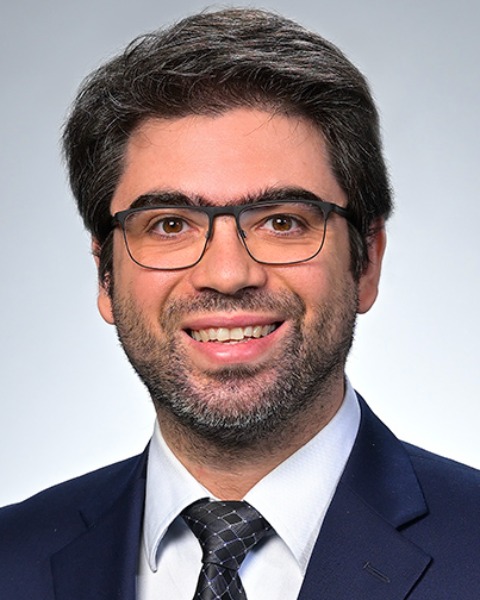Back
Autoimmune Diseases
Session: ImmunoOncology and Cell Therapy
Unique Cellular and Autoantibody Signatures in Patients with Iraes Revealed by Longitudinal Immune Tracking
Wednesday, June 21, 2023
3:45 PM – 4:00 PM
Location: Salon A-D

Sokratis Apostolidis, MD
Rheumatologist / Post-doc
University of Pennsylvania
Philadelphia, Pennsylvania, United States
Presenting Author(s)
Disclosure(s):
Sokratis Apostolidis, MD: No financial relationships to disclose
Abstract Text: The use of anti-PD-1 (aPD-1) immunotherapy has seen significant success in clinical practice, corresponding with a continued rise in clinical indications for multiple cancer diagnoses. Immune-related adverse events (irAEs) are a type of secondary autoimmune toxicities arising in the setting of cancer immunotherapy. They can cause significant morbidity and disruption of the treatment of oncologic patients. They also offer a controlled setting for dissecting the cellular and signaling networks of autoimmunity development. To better understand irAEs in the setting of aPD-1 immunotherapy, we established a prospective, longitudinal cohort at the University of Pennsylvania enrolling patients before immunotherapy and following them for a year. We stratified the responses in two groups: patients that developed at least one irAE event (irAE+) and patients that never developed an irAE event (irAE-). Using high-dimensional cytometry, we found that irAE+ patients had a larger increase in their activated CD4 T cells after PD-1 inhibition compared to irAE- patients. In addition, plasmablast generation following immunotherapy was higher for irAE+ patients. Using PhIP-Seq, an autoantigen screening assay, we found that irAE+ patients demonstrated robust enrichment in autoantibodies against various tissue antigens after immunotherapy with unique patterns for each patient. Finally, a large-scale proteomic analysis revealed that irAE+ patients at baseline have increased levels of circulating inflammatory mediators, including IL-1 and CCL17. These results indicate that there are distinct cellular and serological imprints of irAE+ patients that reflect their heightened autoimmune reactivity and can be used to uncover the underlying pathogenic mechanism of irAEs and design predictive algorithms.
Learning Objectives:
- Upon completion, participants will be able to describe the CD4 T cell and B cell changes that happen after initiation of immunotherapy in patients that develop irAEs vs those that do not.
- Upon completion, participants will be able to describe the unique patterns of autontibody generation in patients with irAEs on PD-1 immunotherapy.
- Finally, Upon completion, participants will be able to describe list important plasma biomarkers that portend the development of irAEs in patients going on PD-1 based immunotherapy.

